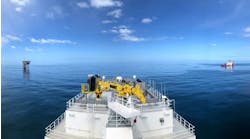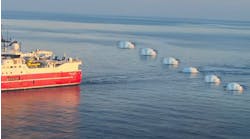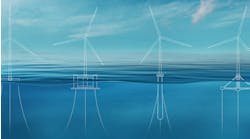Offshore staff
EDINBURGH, UK – Scottish and Chinese scientists are examining whether storage of carbon dioxide (CO2) in deep subsurface rocks is feasible in China’s Pearl River Mouth basin.
This could substantially reduce CO2 emissions and improve air quality in one of the country’s most industrialized regions.
A team from the University of Edinburgh has been studying the geology below the river mouth basin, which has potential for storing CO2 but a limited ability to provide a long-term sealing mechanism.
They are analyzing three depleted oil fields in the Huizhou area: their aim is to identify potential for decades of secure CO2 storage offshore for full-chain carbon capture, utilization, and storage (CCUS) projects in the region, including the Haifeng CCUS project at a coal-fired power plant.
The research, supported by the Scottish Funding Council, EPSRC and NERC, suggests that ‘dispersion trapping’ could be feasible, dispersing the injected CO2 as microscopic droplets throughout the deeply buried geology.
This would unlock large volumes of pore space in storage sites, which lack a single-seal cap rock.
China is one of the world’s largest emitters of CO2 due to its dependence on coal for energy.
Dr Niklas Heinemann, from the University of Edinburgh’s School of GeoSciences, said: “The Pearl River Mouth basin reservoirs have excellent storage potential but we need to ensure that they provide long-term containment of CO2.”
Prof Stuart Haszeldine, also from the university, described dispersion trapping as “like having a damp sponge of CO2 spread throughout the rock. None of the CO2 can escape, even though there is no single seal.
“All the pore space can be used if injection is planned differently to disperse CO2 widely at many levels within the geology. This is like creating direct entrances into several floors of a residential tower block, rather than just using one floor.
“The work is applicable to many reservoirs in China, and globally, and can upgrade storage resources, which are currently unavailable.”
03/15/2018


